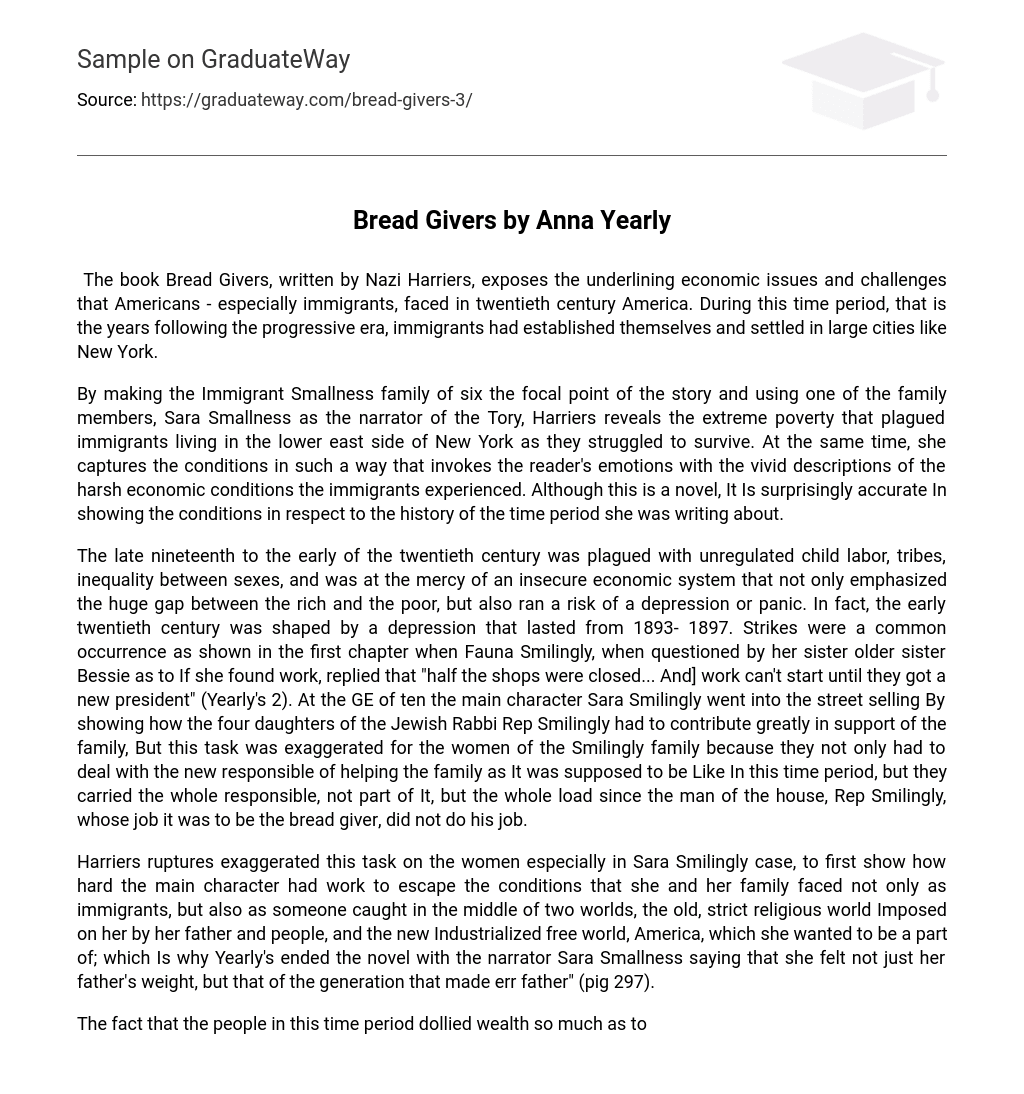The book Bread Givers, written by Nazi Harriers, exposes the underlining economic issues and challenges that Americans – especially immigrants, faced in twentieth century America. During this time period, that is the years following the progressive era, immigrants had established themselves and settled in large cities like New York.
By making the Immigrant Smallness family of six the focal point of the story and using one of the family members, Sara Smallness as the narrator of the Tory, Harriers reveals the extreme poverty that plagued immigrants living in the lower east side of New York as they struggled to survive. At the same time, she captures the conditions in such a way that invokes the reader’s emotions with the vivid descriptions of the harsh economic conditions the immigrants experienced. Although this is a novel, It Is surprisingly accurate In showing the conditions in respect to the history of the time period she was writing about.
The late nineteenth to the early of the twentieth century was plagued with unregulated child labor, tribes, inequality between sexes, and was at the mercy of an insecure economic system that not only emphasized the huge gap between the rich and the poor, but also ran a risk of a depression or panic. In fact, the early twentieth century was shaped by a depression that lasted from 1893- 1897. Strikes were a common occurrence as shown in the first chapter when Fauna Smilingly, when questioned by her sister older sister Bessie as to If she found work, replied that “half the shops were closed… And] work can’t start until they got a new president” (Yearly’s 2). At the GE of ten the main character Sara Smilingly went into the street selling By showing how the four daughters of the Jewish Rabbi Rep Smilingly had to contribute greatly in support of the family, But this task was exaggerated for the women of the Smilingly family because they not only had to deal with the new responsible of helping the family as It was supposed to be Like In this time period, but they carried the whole responsible, not part of It, but the whole load since the man of the house, Rep Smilingly, whose job it was to be the bread giver, did not do his job.
Harriers ruptures exaggerated this task on the women especially in Sara Smilingly case, to first show how hard the main character had work to escape the conditions that she and her family faced not only as immigrants, but also as someone caught in the middle of two worlds, the old, strict religious world Imposed on her by her father and people, and the new Industrialized free world, America, which she wanted to be a part of; which Is why Yearly’s ended the novel with the narrator Sara Smallness saying that she felt not just her father’s weight, but that of the generation that made err father” (pig 297).
The fact that the people in this time period dollied wealth so much as to disregard happiness as shown in the forced, arranged marriage of the Smilingly daughter by their own father for money also goes to show how bad the economic conditions were.





